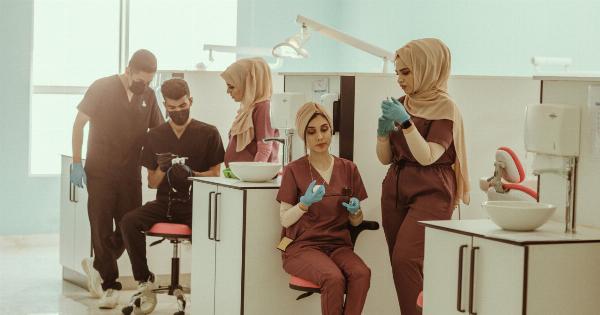With the increased use of antibiotics, bacteria is evolving and becoming more resistant to traditional treatments. This is causing a major issue for hospitals as patients come in with infections that are increasingly difficult to treat.
The Rise of Antibiotic-Resistant Bacteria
Antibiotic resistance occurs when bacteria evolves and becomes resistant to the antibiotics that were once effective in treating infections.
As bacteria evolve and develop resistance to antibiotics, it becomes more difficult for doctors to treat infections. This can lead to longer hospital stays, more expensive treatments, and in severe cases, life-threatening infections.
The Dangers of Antibiotic-Resistant Infections
Antibiotic-resistant infections are more dangerous than regular infections as they are much harder to treat.
Patients who contract an antibiotic-resistant infection are at an increased risk of developing serious health complications, and in some cases, the infection can be fatal. This is why it has become essential for hospitals to find new ways to combat these dangerous bacteria.
New Technologies to Combat Antibiotic-Resistant Infections
One of the ways hospitals are combating antibiotic-resistant infections is through the use of new technologies. These technologies can help to identify infections more quickly and accurately, and can also help with the development of new antibiotics.
For example, hospitals are using genetic testing to identify the specific strains of bacteria causing infections. This allows doctors to prescribe targeted antibiotic treatments that are more effective in killing the bacteria.
In addition, hospitals are also using new technologies like CRISPR-Cas9 to develop new antibiotics that can more effectively kill bacteria.
The Role of Hospital Staff in Combating Antibiotic-Resistant Infections
While new technologies are important, hospital staff also plays a key role in combating antibiotic-resistant infections.
Hospital staff can help prevent the spread of infections by following proper hygiene protocols and taking precautions to ensure that infections do not spread from patient to patient.
One of the most important things hospital staff can do is to properly wash their hands. This may seem like a small thing, but it can make a big difference in preventing the spread of infections.
Staff should also wear the proper protective equipment when dealing with patients who have infections, and should use proper cleaning techniques to ensure that surfaces are disinfected and free from bacteria.
The Importance of Proper Antibiotic Use
Another key factor in combating antibiotic-resistant infections is the proper use of antibiotics.
Many infections can be treated with antibiotics, but it is essential that these drugs are used properly to prevent the development of antibiotic-resistant bacteria.
Doctors should only prescribe antibiotics when they are necessary, and they should also educate patients on the proper use of antibiotics.
Patients should take antibiotics exactly as prescribed, and they should not stop taking the medication without consulting their doctor. This is important to prevent the development of antibiotic-resistant bacteria.
The Future of Combating Antibiotic-Resistant Infections
As bacteria continue to evolve and become more resistant to antibiotics, hospitals must continue to adapt and find new ways to combat these dangerous infections.
This may mean investing in new technologies, educating staff on proper hygiene protocols, and promoting the proper use of antibiotics.
Antibiotic-resistant infections present a major challenge for hospitals, but with the right strategies and tools, it is possible to reduce the spread of these dangerous bacteria and prevent the development of antibiotic-resistant strains.































